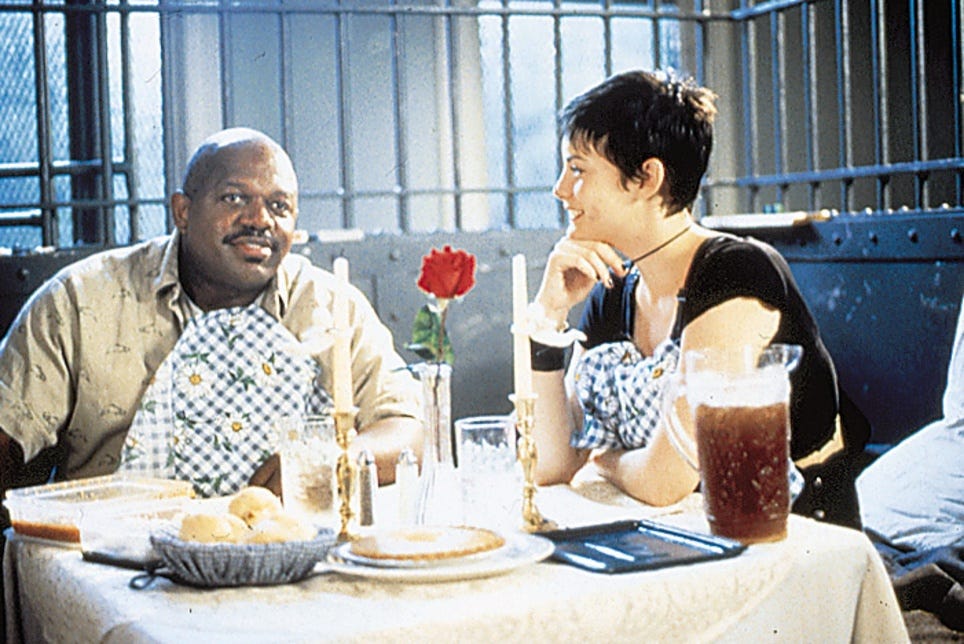Buried Treasures: Cookie's Fortune

Throughout the long trajectory of his career, Robert Altman was known for interweaving multiple plots and characters within the context of a given theme. Think the brotherhood of the country music community in “Nashville” or the detachment of contemporary California life in “Short Cuts.” But in 1999, Altman tried something a bit unique: He directed a motion picture with a plot. One plot. One story. A comparatively small cast of characters. It was called, “Cookie’s Fortune,” and it’s this month’s Buried Treasure.
With a clever screenplay by Anne Rapp, “Cookie’s Fortune” tells the story of Willis (Charles S. Dutton), a handyman wrongly accused of murder in a small Mississippi town. His widowed employer (Patricia Neal) commits suicide at the outset, and her daughters decide to disguise the shooting as a murder in a vain attempt to preserve the family’s reputation. Since Willis had just cleaned the widow’s guns the night before, his fingerprints are all over them. And there you have the most plot structure you’ll ever find in an Altman film.
You see, everyone in the town knows Willis couldn’t possibly commit murder. The jailer (a young Chris O’Donnell) consistently leaves the cell door open, and the sheriff (a fantastic Ned Beatty) plays cards with him — in the cell! You see, Beatty’s character knows Willis is innocent because, “I’ve fished with him” — which seems to be his quintessence test for everyone he knows.
But, as in every Altman film, there’s one character who doesn’t quite fit. One who takes things more seriously than the others. Remember how pathetically dangerous Robert Duvall’s Major Frank Burns seemed in “M*A*S*H” (as opposed to the maniacal buffoon Larry Linville played on the long-running television series)? It was as though the Major Burns character walked on the set from another movie just to give the audience a jolt; to let us know this is war, and war is real.
In “Cookie’s Fortune,” Glenn Close plays Camille, the theatrical and mildly deranged daughter of the deceased — a slightly more comical version of her wicked turn in “Fatal Attraction.” Camille is the smartest character in the picture, but she’s also the one who doesn’t belong; the one who, in a panic attack, might just turn this loveable comedy into a dreary exercise in unhinged madness. Fortunately, Altman is a skilled-enough director to not allow this to happen, but my does he dangle it closely (pun intended). Had Close played her role ever so slightly more unsettled, the entire film would have been ruined. Altman walks a fine line allowing Camille to exaggerate her pomposity, but then her function seems to be to remind us that this is murder, and murder is real.
Still, Altman never loses sight of the fact that “Cookie’s Fortune” is a comedy, dark though it may be. The script is peppered with well-drawn characters, and the acting is first-rate — particularly Beatty as the sheriff, and also Liv Tyler as Camille’s desperado niece, whose boyfriend just so happens to be O’Donnell’s maladroit jailer. Altman is a master at handling these intertwining characters, as he doles out information in small enough doses for us to completely process their connections, and for us to understand the soul of the town in which they regale.
Unfortunately, “Cookie’s Fortune” was released during the spring doldrums — that period between the Oscars and the summer blockbusters, when the studios trot out the fare they don’t think anyone will pay to see. By the time the Oscars rolled around that year, the talk was all about “Magnolia,” “American Beauty,” “The Cider House Rules” and “The Green Mile.” “Cookie’s Fortune” was simply a forgotten footnote to American cinema in 1999. And that’s a shame. You need to seek out this one. It’s funny, touching, and intelligent — and easily one of Robert Altman’s 10 best films.



